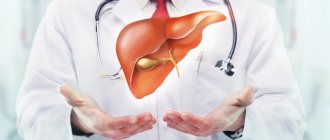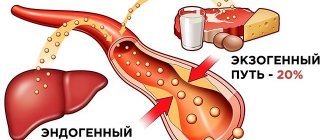What is the essence of rapid screening?
For World Heart Day and World Thrombosis Day, SANTO launched the “Listen to your heart” project, offering everyone a free blood test for cholesterol, blood pressure measurements and consultations with cardiologists. On October 13 and 14, 2018, two screening zones operated in one of the shopping centers in Almaty and Shymkent.
To determine the cholesterol level, the doctor only needs one drop of the patient’s blood. Qualified cardiologists and health care providers measure cholesterol levels using rapid analyzers. The device produces results within four seconds, the same amount of time it takes to determine the level of sugar and triglycerides (fats) in the blood.
Photo by Roman Lukyanchikov for Informburo.kz
At the second stage of screening, doctors measured the patients’ blood pressure and gave recommendations for further diagnosis and lifestyle, depending on the results of the screening.
25 facts you need to know about cholesterol.
If you think that cholesterol is a harmful substance that is found in fatty foods and causes various diseases, then this article is for you.
An organic molecule is much more complex than we think. From a chemical point of view, cholesterol is a modified steroid - a lipid molecule that is formed as a result of biosynthesis in all animal cells. It is an important structural component in all animal cell membranes and is required to maintain the structural integrity and fluidity of the membranes. In other words, a certain amount of cholesterol is absolutely necessary for survival
25 facts about cholesterol
- 1. Cholesterol does not dissolve in the blood; it is transported through the blood by carriers called lipoproteins. There are two types of lipoproteins: low-density lipoproteins (LDL), known as “ bad cholesterol ,” and high-density lipoproteins (HDL), known as “ good cholesterol .”
- 2. Low-density lipoproteins are considered “bad cholesterol” because they contribute to the formation of cholesterol plaques, which clog arteries and make them less flexible. High-density lipoproteins are considered “good” because they help move low-density lipoproteins from the arteries to the liver, where they are broken down and eliminated from the body.
- 3. Cholesterol itself is important for us, performing important functions in our body. It helps in the formation of tissues and hormones, protects nerves and promotes digestion. Moreover, cholesterol helps form the structure of every cell in our body .
- 4. Contrary to popular belief, not all the cholesterol in our body comes from the food we eat. In fact, most of it (approximately 75 percent) is produced naturally by the liver . We get the remaining 25 percent from food.
- 5. In some families, high cholesterol levels are inevitable due to a hereditary disease such as familial hypercholesterolemia . The disease affects 1 in 500 people and can cause heart attacks at a young age.
- 6. Every year, high cholesterol levels lead to 2.6 million deaths worldwide.
Cholesterol level
- 7. Children also suffer from unhealthy cholesterol levels. According to research, the process of cholesterol accumulation in the arteries begins in childhood .
- 8. Experts advise people over 20 years of age to check their cholesterol levels every 5 years. It is best to take a test called a lipoprotein profile , which involves fasting from food and drink for 9-12 hours to get information about your total cholesterol, LDL, HDL and triglyceride levels.
- 9. Sometimes you can find out about high cholesterol levels without testing. If you have a white rim around the cornea of your eyes, then you most likely have high cholesterol. A white rim around the cornea and visible fatty lumps under the skin of the eyelids are some of the sure signs of cholesterol accumulation.
- 10. Eggs contain about 180 mg of cholesterol - this is quite high. However, the cholesterol in eggs has little effect on LDL cholesterol levels in the blood.
- 11. Low cholesterol can be just as bad for your health as high cholesterol. Cholesterol levels below 160 mg/dL can lead to serious health problems, including cancer. Pregnant women with low cholesterol levels were more likely to give birth prematurely.
- 12. High cholesterol levels cause even more health problems. In addition to heart attack, high blood cholesterol can cause everything from kidney failure to liver cirrhosis, Alzheimer's disease and erectile dysfunction.
- 13. Paradoxically, cholesterol is (normally) responsible for your libido. It is the main substance involved in the production of the hormones testosterone, estrogen and progesterone .
- 14. The highest cholesterol levels in the world are found in western and northern European countries such as Norway, Iceland, the UK and Germany, averaging 215 mg/dL.
Cholesterol in men and women
- 15. Although men have higher total cholesterol levels than women before they reach menopause, women's cholesterol levels generally rise after age 55 and become higher than men's .
- 16. In addition to the above-mentioned functions, cholesterol also helps protect the skin , being one of the ingredients in most moisturizers and other skin care products. It protects the skin from ultraviolet damage and is essential for the production of vitamin D.
- 17. Although usually about a quarter of the total cholesterol in our body comes from food, it has been discovered that even if a person does not consume cholesterol at all, the liver is still able to produce cholesterol necessary for body functions.
Cholesterol in foods
- 18. Most commercial foods, such as fried foods and baked goods, chips, cakes and cookies, that claim to be cholesterol-free actually contain trans fats in the form of hydrogenated vegetable oils, which increase “bad cholesterol” levels . and reduce the level of “good cholesterol”.
- 19. Once cholesterol begins to accumulate in the arteries, they gradually become thicker, harder, and even take on the yellowish appearance of cholesterol. If you saw what arteries clogged with cholesterol look like, you would notice that they seem to be covered with a thick layer of butter.
Diet for high cholesterol
- 20. To prevent the risk associated with high cholesterol, changes to your diet are most often recommended. It's worth increasing your intake of cholesterol-lowering foods such as vegetables, fish, oatmeal, walnuts, almonds, olive oil and even dark chocolate .
- 21. However, to reduce the level of “bad cholesterol” and increase the level of “good cholesterol” you can do more than just eat right. Experts also recommend doing at least 30 minutes of physical activity a day .
- 22. Pregnant women have naturally higher cholesterol levels than most women. During pregnancy, total cholesterol and LDL cholesterol levels reach their maximum levels. High cholesterol levels are necessary not only for conception, but also for childbirth.
- 23. On the other hand, in a couple where both the man and the woman have high cholesterol levels, difficulties in conceiving are more likely to occur. For example, a couple may take longer to conceive if one partner has too high a cholesterol level.
- 24. In addition to an unhealthy diet, genetic predisposition, lack of physical activity, smoking, alcohol abuse and stress can contribute to high blood cholesterol levels.
- 25. Breast milk contains a lot of “good cholesterol”, and the fats in breast milk are easily and effectively absorbed by the baby. In infants, cholesterol helps reduce the risk of heart disease and plays an important role in baby's brain development.
Why is high cholesterol dangerous?
Cholesterol is an organic substance that covers the membrane of each cell with a special protective layer. Cholesterol has many important functions, and the body produces most of it itself, and receives the missing part from food.
This substance is insoluble in water, therefore it is distributed as part of complex protein compounds - lipoproteins. They vary in high, low and very low density. It is the last two categories that are called bad cholesterol. Categories of lipoproteins accumulate on the walls of blood vessels in the form of plaques, interfering with the flow of blood and oxygen to the internal organs.
Photo by Roman Lukyanchikov for Informburo.kz
As a result, vascular atherosclerosis develops. It occurs even in young people and can lead to myocardial infarction and other dangerous cardiovascular diseases. For example, to a stroke, which also occurs due to blockage of blood vessels, but only in the brain. Excess cholesterol enters the body with excess fat contained in food.
First of all, cholesterol is a fat-like substance that our body needs to:
| Creation of healthy cells: membranes of red blood cells, membranes of liver cells, brain (gray and white matter); | Ensuring the digestion process: cholesterol is necessary for the production of bile acids, which break down fat; | Hormone synthesis: testosterone, estrogen, progesterone and even cortisol; | Vitamin D synthesis; | Work of the immune, reproductive, nervous systems - and in general, for the normal functioning of the body |
What you need to know about high arterial (blood) pressure?
Blood pressure occurs when the heart pumps blood and exerts pressure on the arteries.
According to WHO, normal blood pressure in adults is determined to be 120 mmHg at the time the heart contracts and 80 mmHg at the time it relaxes. It is considered elevated or high at levels of 140 mm by 90 mm and above.
Photo by Roman Lukyanchikov for Informburo.kz
With high blood pressure - hypertension - it becomes more difficult for the heart to pump blood, which in uncontrolled cases can cause stroke, heart attack, heart failure and other serious ailments. The causes of hypertension are different - from heredity and excess weight to smoking and salt abuse.
The problem with high blood pressure is that a person does not feel it for a long time until it manifests itself in a more severe stage.
Prevention
To prevent high cholesterol levels, you can:
- Be regularly examined in the laboratory of Dіla - 112 “Lipid complex”;
- Follow a diet low in salt and high in fruits, vegetables, and whole grains;
- Limit the amount of animal fats and use vegetable fats in moderation;
- Maintain a healthy weight;
- Quit smoking and reduce alcohol consumption;
- Do physical exercise for at least 30 minutes a day;
- Try to control your stress levels.
Low cholesterol
Reduced cholesterol levels are also a problem. Since cholesterol is an important component of cell membranes, a precursor of hormones, bile acids and other substances that are important in a living organism, reducing its amount below normal also has negative consequences.
- It turns out that people with low cholesterol are more likely to have symptoms of depression and anxiety;
- There are studies showing a possible link between low cholesterol levels and the risk of cancer;
- Cholesterol is necessary for the normal synthesis of sex hormones, the physiological course of pregnancy and the normal menstrual cycle. Low cholesterol may be associated with a risk of premature birth or having a low birth weight baby.
The external symptoms of hypocholesterolemia may manifest differently in each person, but laboratory diagnosis helps to find out their cause.
When can you suspect “low cholesterol” or hypocholesterolemia?
- With regular malnutrition, strict diets;
- In the presence of diseases with impaired liver function (including cirrhosis, hepatitis);
- For inflammatory bowel diseases or protein-losing enteropathies;
- For hyperthyroidism or hypoadrenocorticism (Addison's disease). Low amounts of glucocorticoids may reduce the absorption of cholesterol in the intestine;
- If you are exposed to chronic stress;
- With hyperthyroidism (increased thyroid function);
- With adrenal insufficiency;
- With malabsorption (insufficient absorption of nutrients from the intestines), for example, with celiac disease;
- For leukemia.
Is it possible to determine at home that blood pressure and cholesterol are not normal?
You yourself cannot detect or feel elevated cholesterol levels, so you cannot do without a blood test. Signs of high blood pressure may include headaches, fatigue, rapid heartbeat, a feeling of shortness of breath, and decreased concentration.
Doctors recommend checking your blood pressure level yourself using an automatic tonometer. If it periodically becomes elevated, it is better to consult a specialist. Also, for heart pain and high blood pressure, doctors recommend keeping nitroglycerin-based medicine in your home medicine cabinet.
Photo by Roman Lukyanchikov for Informburo.kz
Where can I measure my cholesterol and blood pressure?
The “Listen to your heart” project is an annual project of the SANTO company, whose task is to inform Kazakhstanis about cardiovascular diseases and methods of their prevention. The organizers regularly conduct “Pulse of Life” express screenings in different cities of Kazakhstan. You can also consult a physician, cardiologist or general practitioner for advice on CVD issues, and also have your cholesterol checked in a medical laboratory.
“By associating the heart rate with a melody, people will listen more carefully to its sounds. The most important thing is that the heart must beat! The results of the screenings show how important it is to take care of your heart health and take preventive measures in a timely manner,” noted Izhi Urbanec , CEO of SANTO.
Izhi Urbanets, General Director of SANTO / Photo by Roman Lukyanchikov for Informburo.kz
“We care about the health of Kazakhstani patients, so we hold such events every year to help people maintain health and improve their quality of life. People are interested in learning how to take care of their heart. This is important so that Kazakhstanis not only know how to treat diseases, but also know how to prevent them.”









